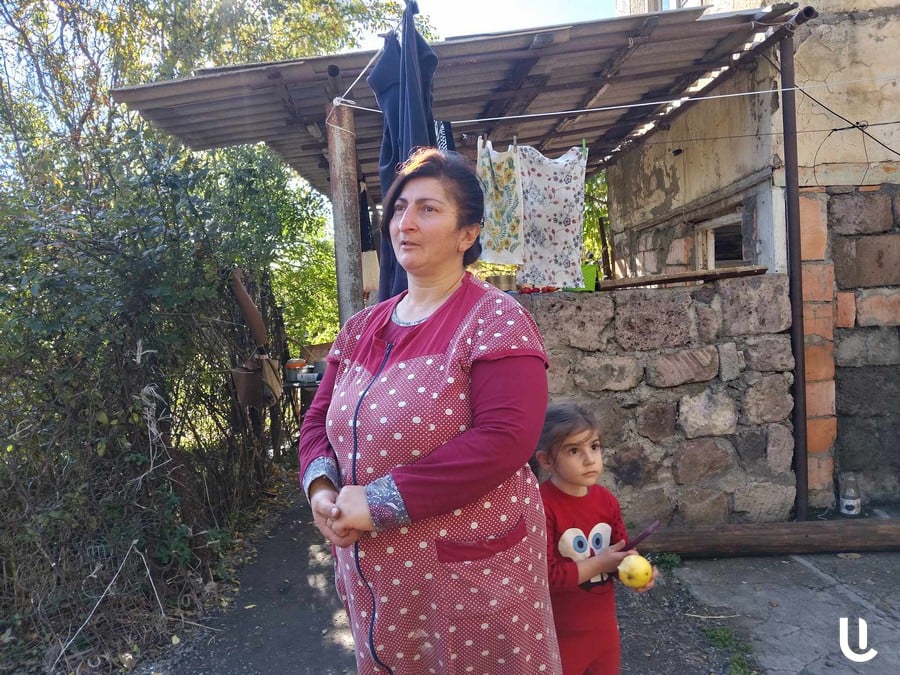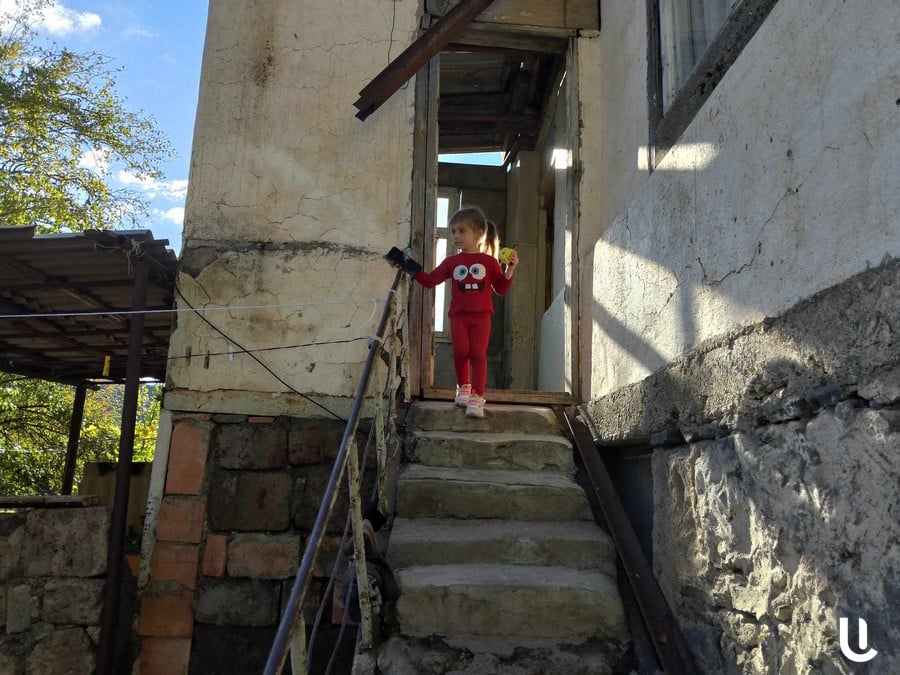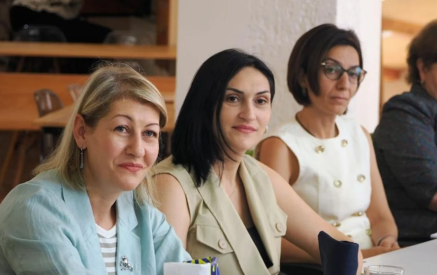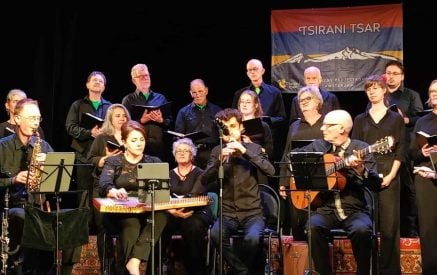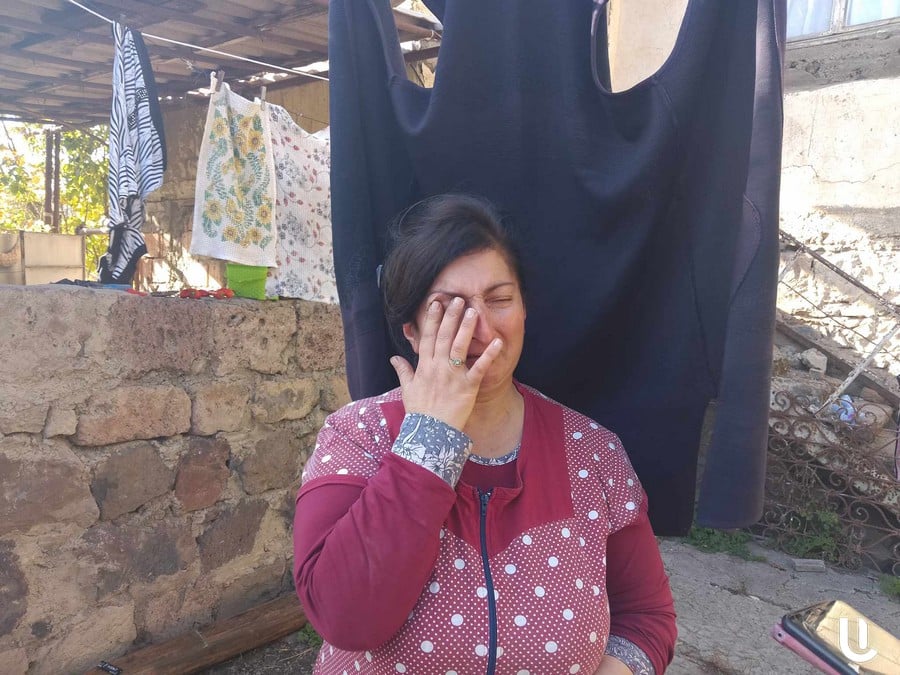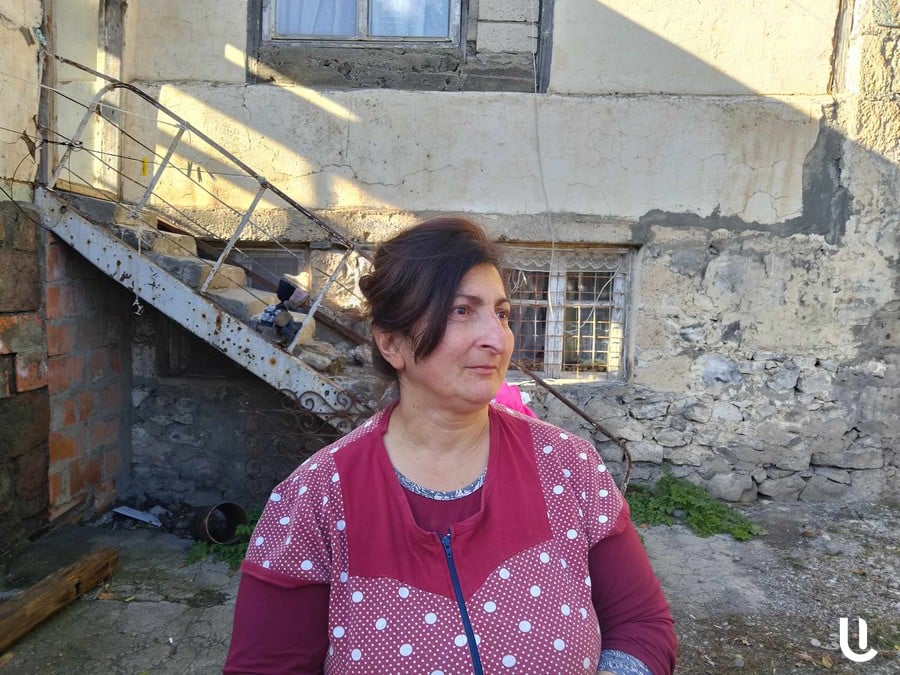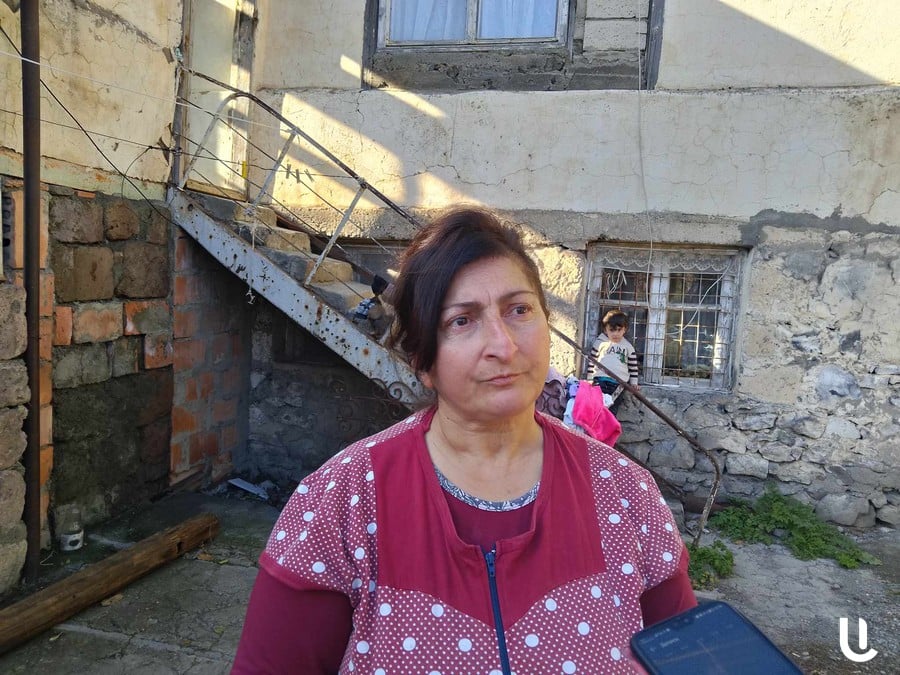The family of Gayane Vanesyan, forcibly displaced from Artsakh, has already lost their home three times. “We lost our father’s house in Stepanakert in 1993 and our house in Shushi during the 44-day war,” Gayane enumerates.
For the third time in the last ten days of September of this year, they left their apartment in Stepanakert, which the state allocated to this family after the 44-day war, as a family with many children.
Born in Stepanakert, Gayane got married in Sisian; after a short time, she returned with her husband and settled in Artsakh, in Shushi. Gayane has six children, five boys and one girl. Before the 44-day war, her family lived in Shushi; after the war, they moved to Sisian for a short time, then left for Stepanakert and settled there. They were forcibly displaced from Artsakh after the attack on September 19 of this year.
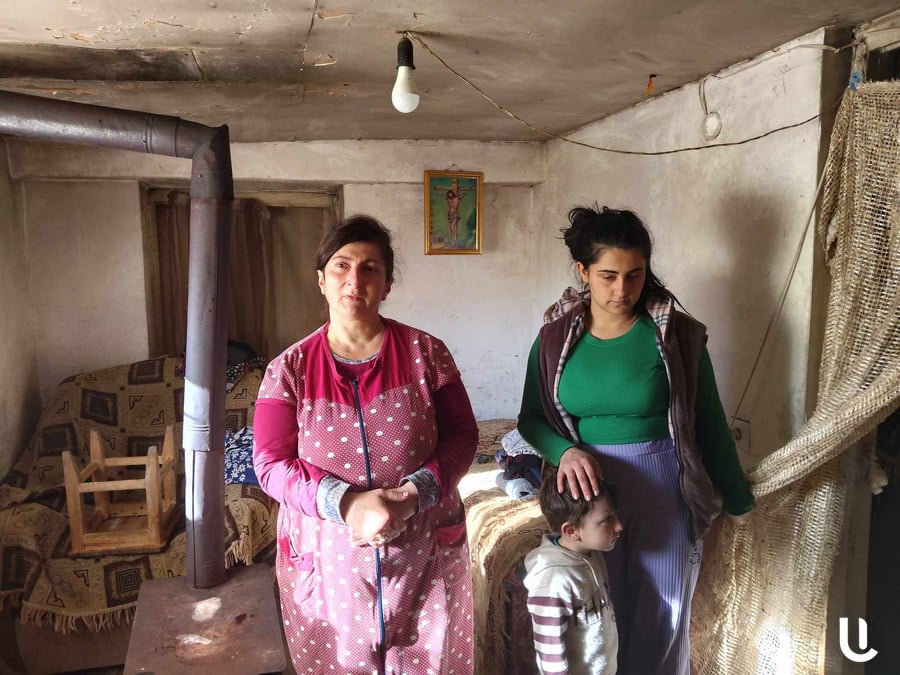
Read also
Gayane Vanesyan’s family lives today in Aghitu village, Sisian, Syunik Region, in the house of her mother-in-law. 11 members of the family live in a dilapidated house, where, according to Gayane, it is freezing in winter. The house does not have essential utilities; the windows are old, and they do not have the necessary equipment; they plan to heat the house with a wood stove. Leaving Stepanakert, this family took only clothes and a bed with them.
“There is no work at the moment; the children collect nuts from the trees for us to eat in the winter. My sons and husband are looking for work, but there is probably no chance of finding a job in Sisian. I want to move to another region, but my husband does not want to; he is still in shock and stress,” says Gayane.
She tells about the situation in Artsakh on September 19, the day of the Azerbaijani attack. “My husband had a heart attack; we went to the hospital for regular check-ups. We had left my grandchildren and daughter-in-law at home; we were in the hospital when it started. My daughter is in the 7th grade; it was a terrible panic; we lost ourselves, and we didn’t understand how to think about our children or our adult parents. This was more terrible than the 44-day war because we had no idea that it would be like this,” says Gayane, unable to hold back tears. “This is ethnic cleansing; we did not imagine that they could hand Stepanakert. People from the side said that they knew in advance, but there was no one among my acquaintances who knew. We never imagined that they would hand over Stepanakert,” he adds.
Gayane Vanesyan presented details of how they passed through the Azerbaijani checkpoint on the Hakari Bridge while moving to Armenia. “We passed normally; they didn’t bother us, but we were afraid for our boys. They didn’t ask us questions, they asked my sons, but my daughter was scared. She even started not studying at school; the child was very broken. We came for three days on the three-hour road. On the second day, my children were hungry and thirsty; it was unbearable.”
In Artsakh, life was difficult during the siege, she says; everything was costly, and they spent all their money buying food. “Everything was terrible; we had a huge house in Shushi, we had everything, my husband was a builder, and we lived well. All this is very heavy for me,” she adds.
Gayane states that he cannot imagine living with Azerbaijanis as long as they are in Artsakh. “As long as they are there, I will not go back. I was a child, we lived with them; it is true, our neighbors were not bad, but now that they have done so much, it is terrible. I will not go. Ninety-nine percent of Artsakh residents will not go to Artsakh to live with Azerbaijanis,” she said.
Gayane’s two sons were in the positions during the September attack and remained in the siege. The son told her that they were forced to hand over their weapons and then get down from their positions. Some family members have received the one-time support of 100 thousand drams, but the other part has not yet. But the main problem is to find a job, she says.
According to Gayane, they were received very well in Syunik. “We have good neighbors; they received us very well and give us what they have in the garden; the important thing is that they are in a perfect mood and received us very well, for which we are very grateful.”
Rosa HOVHANNISYAN



















































